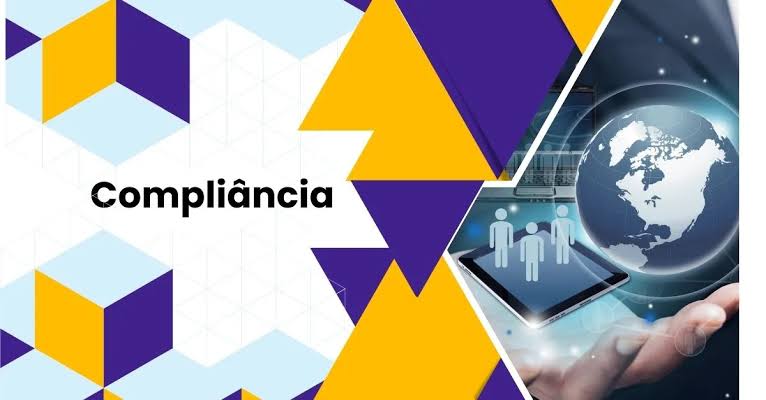
Introduction To Compliância
In the ever-evolving landscape of business, the term “Compliância” has become a cornerstone for sustainable and ethical operations. But what exactly is Compliância? Simply put, it is the practice of ensuring that a company adheres to laws, regulations, standards, and ethical practices relevant to its operations. This guide will delve into the intricacies of Compliância, exploring its history, components, benefits, and more. So, let’s embark on this journey to understand why Compliância is crucial in today’s business world.
History and Evolution of Compliância
Early Beginnings
Compliância, or compliance as known in English, has roots that trace back to the early regulatory efforts in the business world. Initially, compliance was about following basic legal requirements. However, as industries grew and operations became more complex, the need for comprehensive compliance programs emerged.
Modern Developments
Today, Compliância is a sophisticated field encompassing various regulations, ethical standards, and best practices. The evolution of compliance has been driven by major corporate scandals, regulatory changes, and a growing emphasis on corporate governance.
Key Components of Compliância
Policies and Procedures
At the heart of any compliance program are well-defined policies and procedures. These guidelines help ensure that employees understand their obligations and the company’s standards.
Training and Awareness
Regular training sessions are essential to keep employees informed about compliance requirements. This helps in fostering a culture of integrity and accountability.
Monitoring and Reporting
Continuous monitoring and regular reporting are critical to identify and address compliance issues promptly. This involves audits, risk assessments, and compliance checks.
Enforcement and Discipline
For a compliance program to be effective, there must be a system for enforcing policies and disciplining violations. This ensures that all employees take compliance seriously.
Benefits of Implementing Compliância
Legal Protection
One of the primary benefits of Compliância is safeguarding the company against legal penalties and sanctions. Adhering to laws and regulations minimizes the risk of legal issues.
Enhanced Reputation
A robust compliance program enhances a company’s reputation, building trust with customers, investors, and other stakeholders.
Operational Efficiency
Compliance promotes operational efficiency by establishing clear guidelines and procedures, reducing ambiguities and uncertainties in business operations.
Risk Management
Effective compliance programs help in identifying, assessing, and mitigating risks, thus protecting the company from potential threats.
Challenges in Compliância
Complexity and Scope
The scope of compliance can be vast and complex, covering various aspects of operations. This makes it challenging to manage and implement effectively.
Cost and Resources
Implementing a comprehensive compliance program requires significant investment in terms of time, money, and resources.
Cultural Barriers
In multinational companies, cultural differences can pose challenges in standardizing compliance practices across various regions.
Keeping Up with Changes
Regulations and standards are constantly evolving, making it difficult for companies to stay updated and compliant.
Steps to Establish an Effective Compliância Program
Assessing Risks
The first step is to conduct a thorough risk assessment to identify areas where the company is most vulnerable.
Developing Policies and Procedures
Based on the risk assessment, develop detailed policies and procedures tailored to the company’s operations and regulatory requirements.
Training Employees
Implement regular training programs to educate employees about compliance policies and procedures.
Monitoring and Auditing
Regularly monitor compliance activities and conduct audits to ensure adherence to policies and procedures.
Responding to Issues
Establish a clear protocol for responding to compliance issues, including investigation, remediation, and reporting.
Role of Technology in Compliância
Compliance Management Software
Utilizing compliance management software can streamline the implementation and monitoring of compliance programs.
Data Analytics and Reporting Tools
Advanced data analytics and reporting tools help in tracking compliance metrics and identifying trends or areas of concern.
Automation of Compliance Processes
Automation can significantly reduce the burden of manual compliance tasks, increasing efficiency and accuracy.
Industry-Specific Compliância Considerations
Financial Services
Compliance in financial services involves adhering to stringent regulations to prevent fraud, money laundering, and other financial crimes.
Healthcare
Healthcare compliance focuses on patient privacy, data security, and adherence to medical standards and regulations.
Manufacturing
In manufacturing, compliance includes safety standards, environmental regulations, and quality control.
Technology
For the technology sector, compliance involves data protection, cybersecurity, and intellectual property rights.
Global Perspectives on Compliância
Differences in Compliance Standards
Compliance standards vary significantly across different countries and regions, requiring multinational companies to adapt their programs accordingly.
International Regulatory Bodies
Organizations like the International Organization for Standardization (ISO) and the International Electrotechnical Commission (IEC) set global standards that influence compliance practices.
Cross-Border Compliance Challenges
Cross-border operations pose unique challenges due to differing legal and regulatory frameworks, making global compliance a complex task.
The Future of Compliância
Emerging Trends
Emerging trends in compliance include a greater focus on ESG (Environmental, Social, and Governance) criteria, data privacy, and ethical AI use.
The Impact of AI and Machine Learning
AI and machine learning are revolutionizing compliance by providing advanced tools for monitoring, reporting, and risk assessment.
Predictions for the Next Decade
In the next decade, we can expect compliance programs to become even more integrated with technology, with a stronger emphasis on real-time monitoring and predictive analytics.
Conclusion
In conclusion, Compliância is not just about adhering to regulations but about fostering a culture of integrity, transparency, and accountability. By understanding its components, benefits, challenges, and the role of technology, businesses can develop robust compliance programs that safeguard their operations and enhance their reputation. As we move into the future, staying ahead of emerging trends and leveraging advanced technologies will be key to maintaining effective compliance.
FAQs
What are the main objectives of Compliância?
The main objectives of Compliância are to ensure that a company adheres to relevant laws and regulations, promotes ethical conduct, manages risks, and fosters a culture of accountability and transparency.
How often should compliance training be conducted?
Compliance training should be conducted regularly, with most companies opting for annual training sessions. However, additional training may be necessary when new regulations are introduced or when employees are promoted to positions with greater compliance responsibilities.
What are some common compliance violations?
Common compliance violations include data breaches, financial misconduct, violations of labor laws, environmental infractions, and failure to adhere to industry-specific regulations.
How can small businesses implement compliance programs?
Small businesses can implement compliance programs by conducting risk assessments, developing clear policies and procedures, training employees, and using cost-effective compliance management tools. They can also seek guidance from compliance consultants or legal advisors.
What is the role of a Chief Compliance Officer?
A Chief Compliance Officer (CCO) is responsible for overseeing the compliance program, ensuring that the company adheres to laws and regulations, conducting risk assessments, implementing training programs, and responding to compliance issues. The CCO plays a crucial role in fostering a culture of compliance within the organization.



